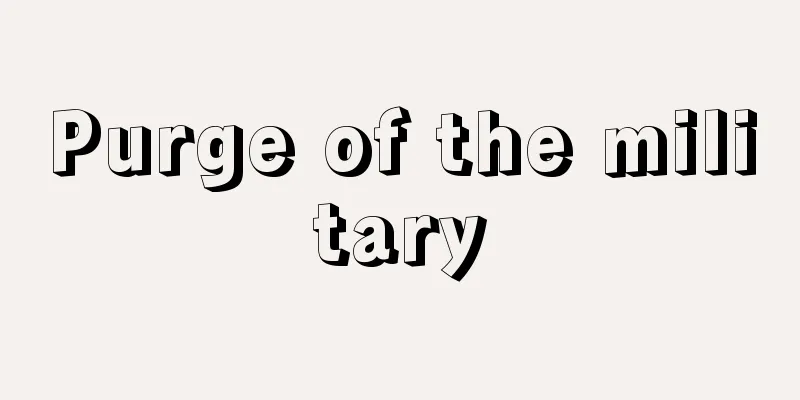Degeyter, P. (English spelling) DegeyterP

|
...A labor song. During the Paris Commune, revolutionary and poet E. Potier wrote a poem in 1871, and amateur composer Pierre Degeyter (1848-1932) composed the song in 1888. It was widely sung during the labor movement, but in the Soviet Union after the revolution, it was sung as the national anthem until a new national anthem was adopted in 1944. *Some of the terminology that mentions "Degeyter, P." is listed below. Source | Heibonsha World Encyclopedia 2nd Edition | Information |
|
…労働歌。パリ・コミューンのとき,革命家で詩人のE.ポティエが1871年に作った詩に,ドジェーテルPierre Degeyter(1848‐1932)という素人作曲家が88年に作曲した。労働運動のなかで広く歌われてきたが,革命後のソ連邦では,1944年に新しい国歌が採用されるまでは国歌として歌われた。… ※「Degeyter,P.」について言及している用語解説の一部を掲載しています。 出典|株式会社平凡社世界大百科事典 第2版について | 情報 |
<<: De Graff (English spelling)
Recommend
Wood-based mother-of-pearl inlay - Kijiraden
…In China, decoration using shells is said to hav...
Kazimierz IV Jagiellonczyk (English spelling)
…[Miyajima Naoki]. … From the Jagiellonian Dynast...
Bible kralicka (English spelling)
…A Central European republic that existed from 19...
Torajiro Omoto - Torajiro Omoto
… In Japan, in 1902, Yato Ryoichi applied for a p...
Famous fabrics - Meibutsugire
From the Middle Ages to the early modern period i...
Iwate National Vacation Village - Iwate Sanroku National Vacation Village
...Simple sulfur spring, 82°C. Formerly a hot spr...
Civil Law - Shiminho
Roman civil law (Ius civile in Latin) refers to t...
Peeping Tom
...Examples include people in Northern Europe bat...
Elaidic acid (English spelling)
It is a type of unsaturated linear carboxylic aci...
Veranda - Engawa
A wooden walkway that runs around the perimeter o...
Hygienic testing laboratory
An organization that inspects living environments ...
Law of uneven development
In capitalist society, the law states that develo...
societas publicanorum (English notation) societas publicanorum
…They exploited the natives of the provinces and ...
Single-edged knife
...In Japan, where sashimi, which only requires c...
Ribs
In vertebrates, this refers to a cartilaginous or...









